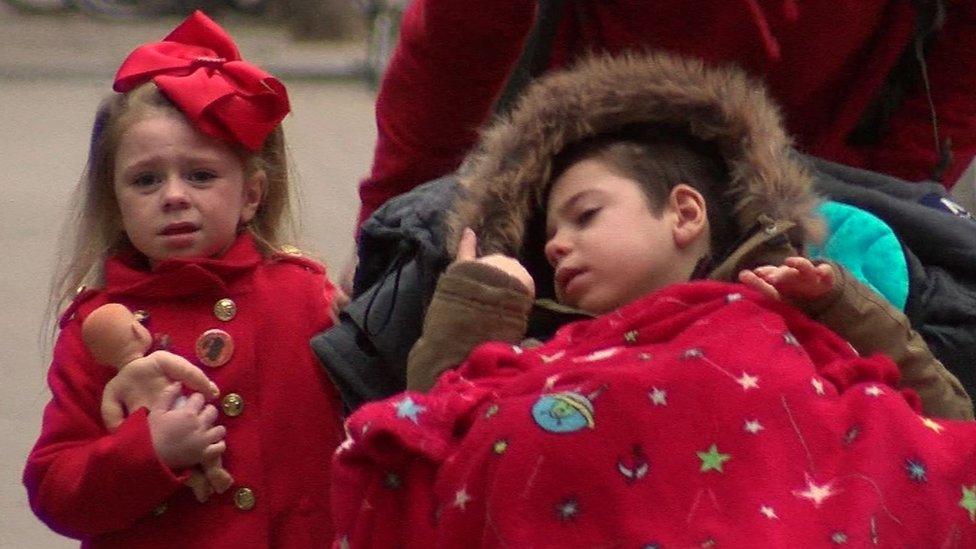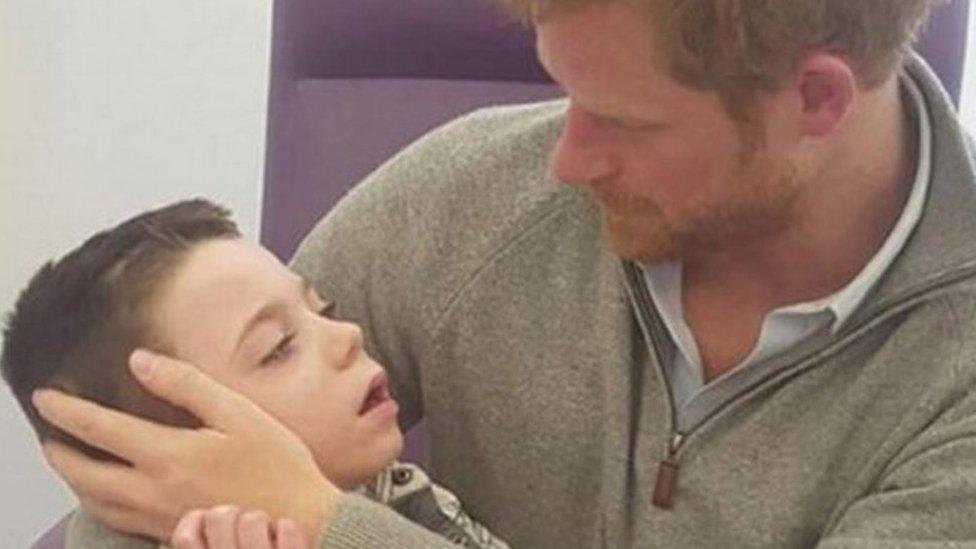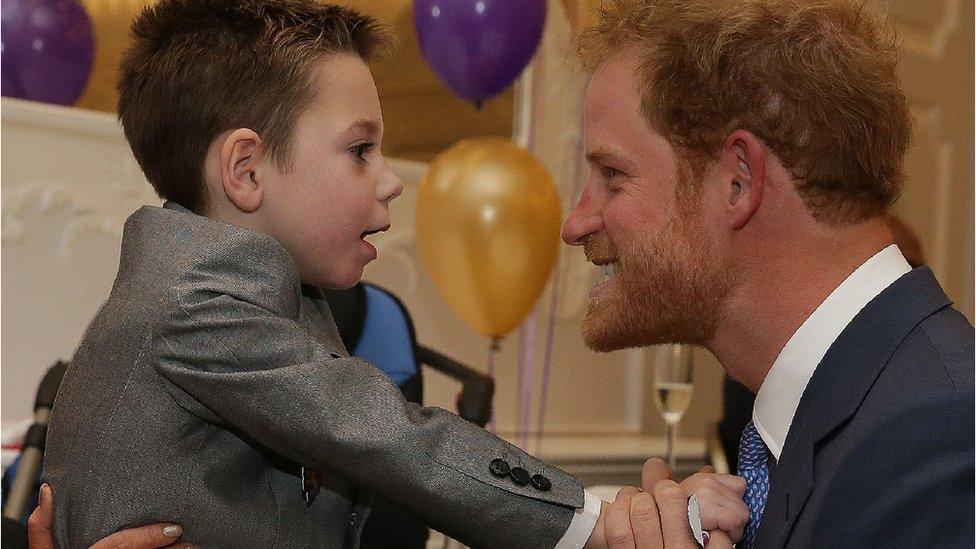Parents of children with Batten disease 'terrified' over funding decision
- Published

Amelia and Ollie Carroll, now aged eight and six, from Poynton, have Batten disease
The parents of a brother and sister with a rare, inherited condition said they are "devastated" their treatment will not be funded by the NHS.
Ollie and Amelia Carroll, aged eight and six, from Poynton, have Batten disease, which is currently incurable.
Their parents have been campaigning for a drug that can slow its progression to get long-term NHS recognition.
But it will no longer be recommended for NHS use over "concerns about its long-term effectiveness".
The National Institute for Health and Care Excellence (NICE) said, external the decision not to recommend the drug - cerliponase alfa - came "at the end of year-long negotiations" between the company which produced it and NHS England.
'They will die'
It said the company was unable to "price the treatment" at a level that would have addressed the problems highlighted during NICE's assessment of it.
In a Facebook post, external, parents Lucy and Mike, said: "As parents we are completely devastated by this decision."

Ollie meeting Prince Harry in 2016
The statement adds: "We do not know what this decision means for Ollie and Amelia but it is terrifying.
"If treatment is removed Ollie and Amelia will deteriorate rapidly and, ultimately, they will die."
The parents said they had taken legal advice and aim to continue to fight for their right to use the drug.
'Short-term benefits'
In its earlier draft guidance, published last year, the NICE independent committee agreed that, although cerliponase alfa was not a cure, it was "an important development for treating the condition".
It also said the drug had shown "substantial short-term benefits in slowing the rate at which it progresses".
Symptoms in children with the condition begin from around the age of two and can then progress rapidly. These include:-
seizures
decline in speech
loss of mobility
involuntary muscle spasms
progressive dementia
visual impairment leading to blindness
The average life expectancy of a child with the condition is 10. It is estimated that in the UK there are around 30 to 50 children living with Batten disease.
The draft guidance from NICE, external is now out for consultation.
The drug company, healthcare professionals and patient/carer organisations all have the opportunity to appeal against the recommendations.
- Published3 October 2016

- Published5 May 2017
